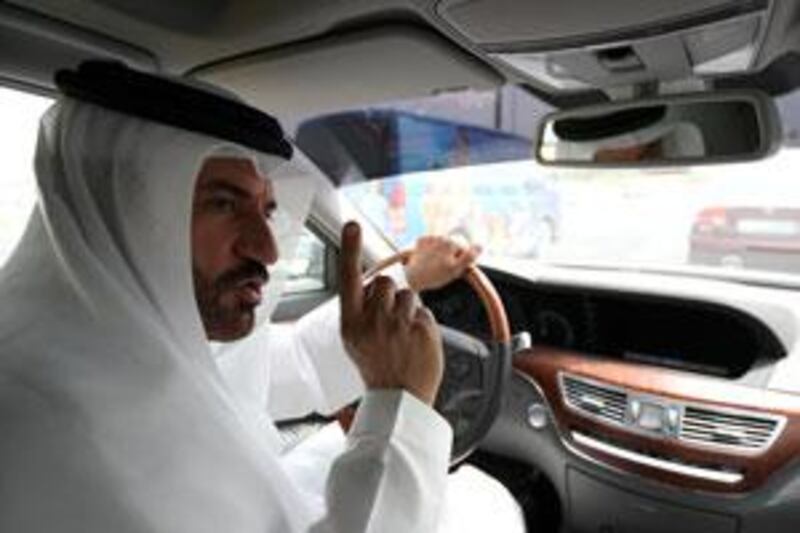The country's most successful rally driver has said the police should test motorists suspected of drink-driving. Mohammed ben Sulayem, the 14-time Middle East Rally champion has experienced firsthand the damage that can be done by drink drivers. Friends have been killed in accidents when they were either driving after drinking or were in collisions with drinking drivers. "If you don't lose your life, somebody else will lose theirs," he said. "If you do not lose both lives, you lose some of your health."
Mr ben Sulayem welcomed news this week that officers in Dubai were being trained to use equipment which tests alcohol levels in a person's breath. In Dubai last year, 76 people were killed in drink driving accidents with 1,176 alcohol-related cases registered by the Traffic Prosecution department, police said. Those numbers are up from 2007, when 60 deaths and 1,038 cases of drink driving were recorded.
Mr ben Sulayem urged drivers to think about the consequences before getting behind the wheel under the influence. "I always look at the car as a knife in the kitchen," he said. "You can use it to cut salads or you can use it to kill people. It is not the knife, it is the people using it. "It is the same thing with the car. You can use it for getting around, you can use it for pleasure, but you cannot use it as a weapon for killing people."
The penalty under the amended federal traffic laws points system for driving under the influence of alcohol, drugs or similar substances is 24 black points, which results in an automatic suspension of a driver's licence and vehicle confiscation for 60 days. Further punishment is decided by the courts. If convicted of drink driving, motorists face up to three years in jail and, if they are expatriates, deportation, depending on whether the offence resulted in an accident and whether it caused injury.
In Abu Dhabi, officers are trained to identify drink drivers and bring them back to police stations for blood and urine tests, said Lt Col Yeslam al Temimi of Abu Dhabi Police's fatal accident investigation department. Patrols which respond to accidents involving serious injuries are equipped with breath meters. However, police in Abu Dhabi have deemed on-the-spot breath tests for suspected drink drivers unnecessary.
Drink driving was a factor in 66 accidents in the emirate last year, one more than 2007 but 15 fewer cases than in 2006, when there were 81. Some Dubai residents welcomed the move by their police. Clare Brown, 28, an architect from the US, said yesterday that breath tests should have been introduced a long time ago. "I don't think it is as a big a problem as in western countries but still, it happens and people shouldn't do it. Drink driving endangers lives but I think they should still focus more on reckless driving and educate drivers, especially large-SUV drivers who have no consideration for other road users."
Christian Daley, 29, a logistics co-ordinator from the UK, said testing drink-driving suspects was a good idea but was concerned about the level of enforcement and how the tests would be carried out. "They make new laws but I rarely see them enforced. I still see people driving while talking on the phone, and young children bouncing around the back of a 4x4 breaking the speed limit. "However, if it makes a difference and cuts crashes and deaths on the roads, it is a good idea. But if they stop traffic to breathalyse drivers at random and cause traffic jams, I will not be too happy."
hhassan@thenational.ae * With additional reporting by Matthew Chung and Eugene Harnan






